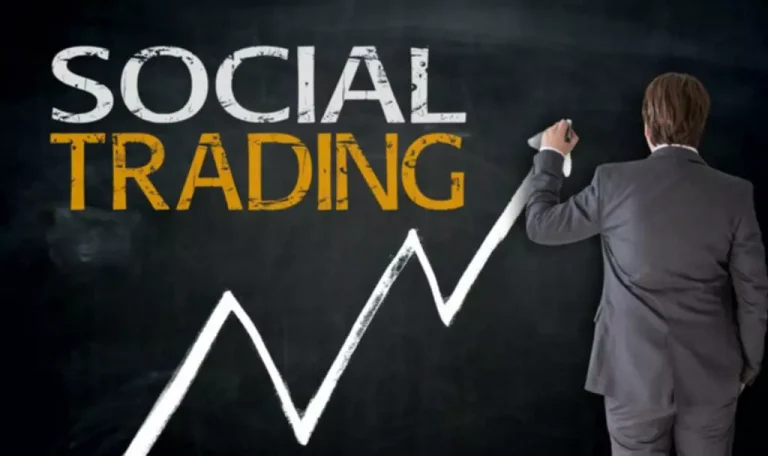Pew Analysis Center estimates that 52% of American households have some type of funding within the stock market. Most of this funding is usually in the type of retirement accounts and 401(k)s. Shopping For these shares on the darkish pool means that ABC Investment Agency’s commerce won’t have an effect on the value of the inventory. It also won’t alert anybody else about the commerce, which means that speculators won’t jump on board and comply with go properly with, thereby driving the worth up even larger. Darkish pool operators have additionally been accused of misusing their darkish pool information to commerce against their different prospects or misrepresenting the pools to their shoppers.
- Estimates present that it accounted for approximately 40% of all U.S. inventory trades in 2017 in contrast with roughly 16% in 2010.
- As trades are executed away from public exchanges, the general market becomes less transparent, making it troublesome for investors to gauge true market situations.
- For example, routing orders through their inner darkish pool would usually be cheaper than routing them by way of public exchanges.
- VWAP orders distribute trades in smaller segments to reduce their impression on costs, allowing for a more gradual and fewer conspicuous execution of large trades, a crucial profit in dark swimming pools.
- Investors excited about putting large-volume trades submit orders to dark pools via their broker-dealer or monetary establishment.
- Darkish swimming pools are non-public forums or exchanges where investors should buy or promote securities without publicly disclosing their identities or intentions.
Professional traders in darkish pools have a competitive https://www.xcritical.in/ and information benefit over retail traders dealing on public exchanges. Nonetheless, there’s little proof that dark pool trading results in worse outcomes for retail buyers. Independent change or agency-owned darkish swimming pools are offered by individual corporations who should register with regulators such as the SEC and FINRA.

Traders earn cash in Darkish Pool Trading by benefiting from the worth discrepancies between the general public exchange price and the true market price. They also earn cash by taking benefit of market inefficiencies that happen when high-frequency traders use advanced darkpool algorithms to execute trades. Buyers earn cash by inserting restrict orders at midnight pool, which permits them to buy or sell securities at a specified price or better.

Mechanics Of Dark Pools
As we look to the means ahead for dark swimming pools, several tendencies are more doubtless to emerge, pushed by the necessity for larger efficiency, transparency, and flexibility. Technological improvements have helped to improve darkish pools’ usefulness, safety, and effectivity. Darkish pools are primarily used by institutional investors such as mutual funds, hedge funds, pension funds, insurance coverage corporations, broker-dealers, and sovereign wealth funds. They contribute liquidity, usually using algorithmic buying and selling methods to identify and capitalise on favourable alternatives, rising buying and selling activity inside dark pools. For proprietary trades, dark swimming pools help cut back public exposure of the agency’s positions, minimising undesirable price fluctuations.

Whereas public exchanges like the Nasdaq supply real-time information on market volume, private exchanges can hold the amount data hidden up to certain limits allowed by rules. Dark pools are personal exchanges for trading securities that aren’t accessible to the investing public. Additionally known as darkish swimming pools of liquidity, the name of those exchanges is a reference to their complete lack of transparency.
This midpoint pricing is useful as it ensures each the buyer and the seller obtain a good market price. These darkish swimming pools are owned collectively by a group of monetary establishments or brokerage firms. The consortium model offers a shared buying and selling venue that advantages a collective of institutional clients quite than serving the pursuits of a single broker-dealer. Operated by high-frequency trading corporations or electronic market makers, these dark swimming pools use advanced algorithms and high-speed infrastructure to match trades efficiently.
The lack of transparency of darkish pools is one of their major primary drawbacks. Darkish swimming pools run without revealing commerce information until after deals are accomplished, not like public exchanges where each transaction element is visible to all participants. From a big fraction of the market, including individual investors with out entry to those secret trading platforms, this lack of disclosure could cover actual market exercise.
For occasion, the SEC has put regulations mandating extra thorough disclosures on darkish pool operations and buying and selling nature into impact. Notwithstanding these initiatives, the difficulty still lies in hanging a stability between the anonymity required by big institutional traders and the need of the marketplace for justice and openness. Institutional investors, corresponding to mutual funds, pension funds, and hedge funds, are the principle customers of darkish pools. They favor darkish pools because these venues assist them trade large volumes with out affecting the market. They function intermediaries, connecting institutional purchasers with liquidity.
How Darkish Pool Trading Works 👷♂️
Dark swimming pools utilize numerous kinds of order matching algorithms, together with steady crossing methods and periodic call auctions. Steady crossing methods match orders in real-time as they are received, whereas periodic call auctions mixture orders over a set period Cryptocurrency before executing them simultaneously. These strategies aim to optimize commerce execution by minimizing market impact and offering price improvement over public exchanges.
These dark pools derive their own prices from order move, so there is an element of worth discovery. Dark pools happened primarily to facilitate block buying and selling by institutional traders who did not want to impact the markets with their giant orders and procure adverse costs for their trades. Sure, the SEC regulates Dark Pool Trading, however they’ve restricted oversight in comparability with public exchanges. Dark pools usually are not required to disclose their trading volumes or the participants in their trades to the basic public, making it troublesome for regulators to observe them. However there have been instances of illegal practices such as front-running, insider buying and selling and worth distortion in darkish pools. Critics argue that darkish swimming pools contribute to market fragmentation and scale back transparency, making it tougher for regulators to observe trades and ensure that markets are truthful.
Darkish swimming pools have attracted controversy as a outcome of their anonymity and the fears that they encourage unfair and unsustainable trading. Monetary inequality is elevated as institutional investors have an unfair insight over the markets, and retail buyers might not have the proper perception when wanting at the market. By definition, a dark pool is an change or monetary forum which is used for buying and selling securities privately, between establishments.